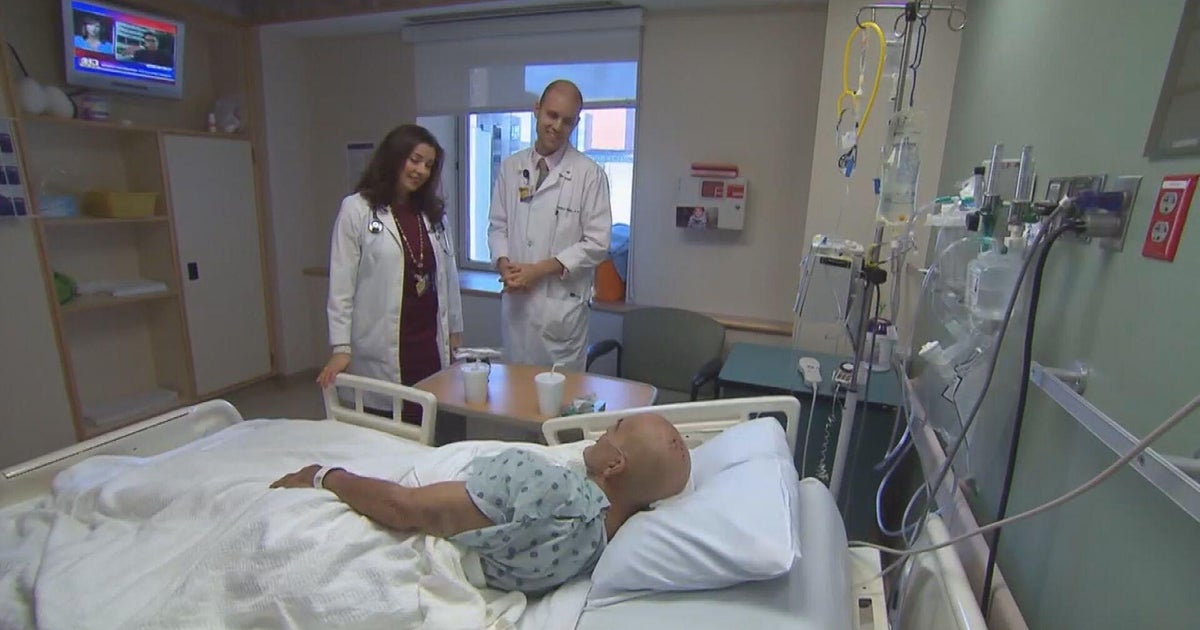New silica dust exposure limit sigh of relief for Pittsburgh-area coal miners
PETERS TOWNSHIP (KDKA) — Coal miners can breathe a small sigh of relief with the new federal rule that cuts their exposure to silica dust.
A Washington County health and legal clinic for coal miners with the disease is weighing in on the big changes on the way.
"My initial thought was this is a long time coming. We've had to have a lot of severe illness and death. And we really didn't get this done until younger miners started getting sick and dying," said Lynda Glagola, founder of the non-profit organization Lungs at Work.
Glagola said it's long overdue. Lungs at Work is a medical, legal clinic in Peters Township for coal miners in the tri-state area who have difficulty breathing.
The U.S. Department of Labor's Mine Safety and Health Administration issued the new rule that cuts the maximum silica exposure limit to 50 micrograms per cubic meter for an eight-hour shift and creates an "action level" for when exposure hits half of that.
"Silica dust is especially toxic, much more toxic than coal mine dust," said Glagola.
The clinic is seeing the heartbreaking health effects. It specializes in black lung diagnosis and treatment. The interim CEO of Lungs at Work, Deanna Istik, said it also helps miners get black lung benefits and fight for them in court.
"Not only are we diagnosing younger coal miners, but the disease that we're diagnosing them with is more severe," Istik said.
While officials have seen a huge rise in different types of black lung disease, what's most concerning to them is the percentage of miners with dust-related diffuse fibrosis nearly doubled in 2023, and those miners are much sicker.
"Black lung disease is preventable, but it's not treatable. So, if we can put a rule in place that's going to help prevent our coal miners from getting this disease, I'd much rather do that," Istik said.
They think that overall, the new rule is a great first step to help underground workers breathe healthier.
"It's heartrending to take care of these people. They're good, hard-working people who have disease really through no fault of their own. So, anyone that we can prevent, that's what we want to see. But we realize that whether this works or not, we'll probably take at least a decade to determine because black lung is a latent and progressive disease," said Glagola.
The Pennsylvania Coal Alliance shared the comments it made on the proposed rule in 2023. It said in part, "At the outset, we question the necessity for the proposed rule, especially for the coal industry. The preamble indicates that only 1.2% of the samples the Mine Safety and Health Administration (MSHA) is relying on show an exceedance of the existing 100 microgram standard. More importantly, the scientific basis set out in the preamble does not support adoption of the rule for the coal industry."
The National Mining Association provided a statement that said, in part: "We are still reviewing the rule and need to discuss it with our members, but we fully support the new, lower limits contained in the rule and are absolutely committed to working to improve the health and safety of our miners. We do, however, continue to believe that the MSHA rule should be consistent with the Occupational Safety and Health Administration's crystalline silica rule on methods of compliance."







